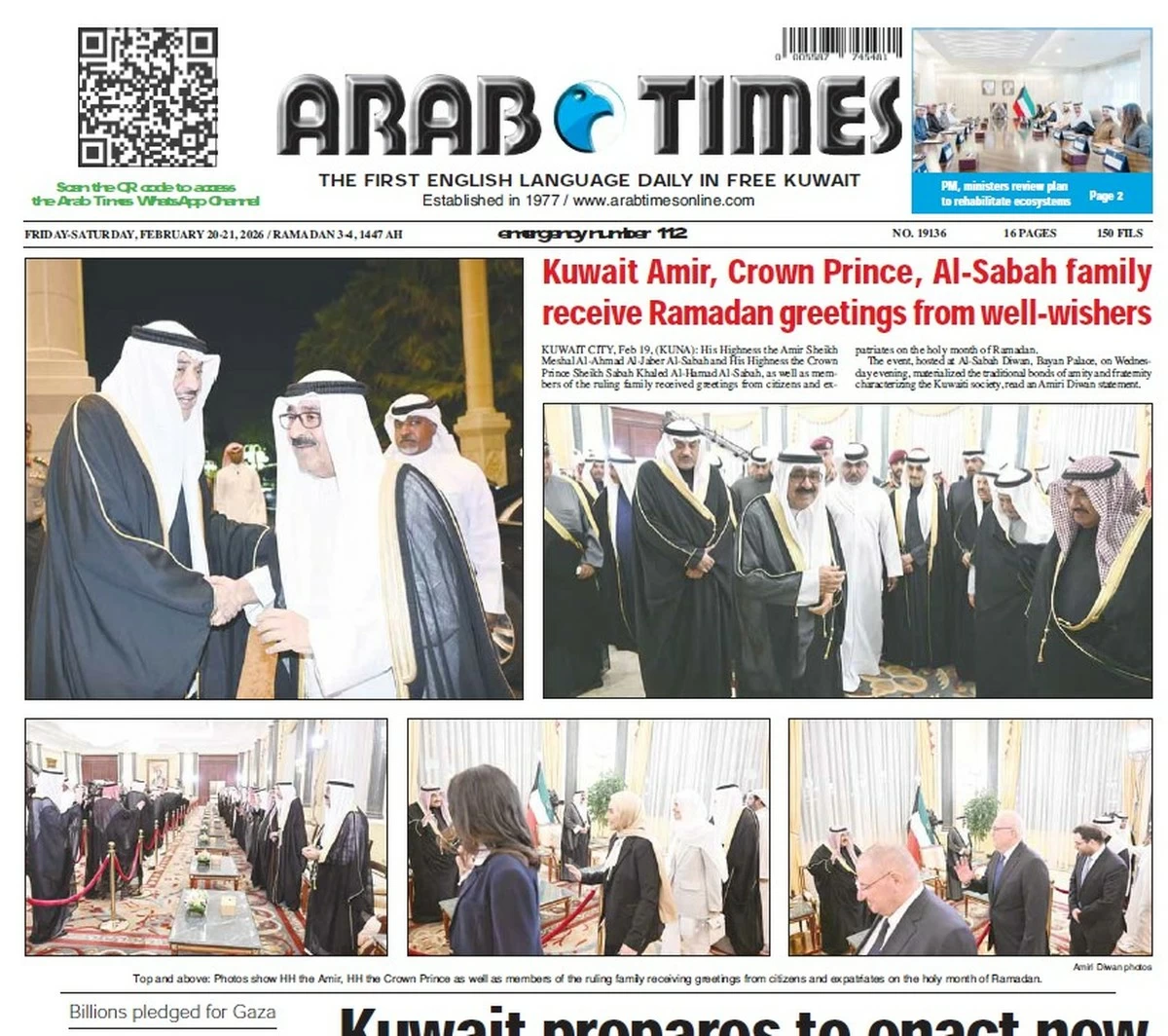27/07/2024
27/07/2024
KUWAIT CITY, July 27: A group of livestock breeders expressed their dissatisfaction with what they described as “the sudden citations that have been imposed on them in the past few days”. They stressed that these citations caused them financial losses, and they urged the concerned authorities to take into consideration their financial situation, as most of them are retirees who do not have anything but their pensions.
During a joint meeting with members of the Livestock Breeders Association and the Deputy Director General for Technical Affairs at the Public Environment Authority Dr. Abdullah Al-Zaidan, citizens complained about the citations that were issued unjustly in implementation of Article 40 of the Environment Law. They also highlighted the absence of a gradual approach to deal with violations, urging for the provision of grace periods and warnings before imposing financial fines. Some breeders demanded the opening of reserves by issuing a law that regulates grazing in them, even for a certain period of the year, and based on the recommendations of the environment. They stressed that this can achieve environmental benefits by recycling animal manure in them.
The breeders also urged oil companies to permit livestock grazing once more after proposing regulations and arrangements that benefit all parties. They questioned the motives and reasons for the ban in vast areas of land from Dhaher to the Wafra stables. They also highlighted the huge cost incurred by the state for weed removal in the oil networks using specialized companies. The breeders said Dr. Al-Zaidan promised to convey their demands to the relevant minister, as well as the abuses they face from some employees of the authority.
The livestock owners proposed a package of proposals in this regard including some proposals to preserve the environment and grazing areas identified by the joint committee.
1. Gradual enforcement of citations with warnings or orders for reconciliation, particularly in unfenced areas where the prohibition is not widely known, such as sidewalks without clear signage.
2. Collaborate with the municipality to clean up scattered debris along the Seventh Ring Road, Salmi Road, and Abdali Road. Remove remnants of fixed stables and abandoned spring camps scattered throughout the Kuwaiti desert.
3. Organize the pigeon coops, which currently span areas exceeding one kilometer, posing obstacles to livestock movement for grazing. Specific designated areas should be allocated for them, ensuring they do not exceed these boundaries and expand their stable areas..
4. Establish a joint committee between Kuwait Municipality and the Environment Public Authority dedicated to overseeing spring camps, fixed stables, and pigeon coops. Permits will be issued specifying the area and duration allowed, with periodic enforcement campaigns in the spring to penalize those operating without permits. This initiative aims to safeguard the environment by defining and monitoring the exact coordinates of each camp or stable. It is also mandated that upon departure, operators notify the committee within ten days to prevent fines for leaving waste in the same location.
5. Issue a 48-hour crossing permit aimed at easing the movement of livestock owners. Currently, navigating around the reserve to access the opposite side compels them to travel considerable distances and cross highways. Allowing crossing within the reserve, with the condition of avoiding damage to crops, significantly reduces travel time and effort for livestock owners.
6. Set up a WhatsApp number to facilitate cooperation and receive notifications about privately owned reserves located in designated grazing areas assigned by the joint committee. These notifications will enable prompt removal of unauthorized structures, ensuring the designated areas are used appropriately for grazing purposes.
By Abdul Nasser Al-Aslami
Al-Seyassah/Arab Times Staff


